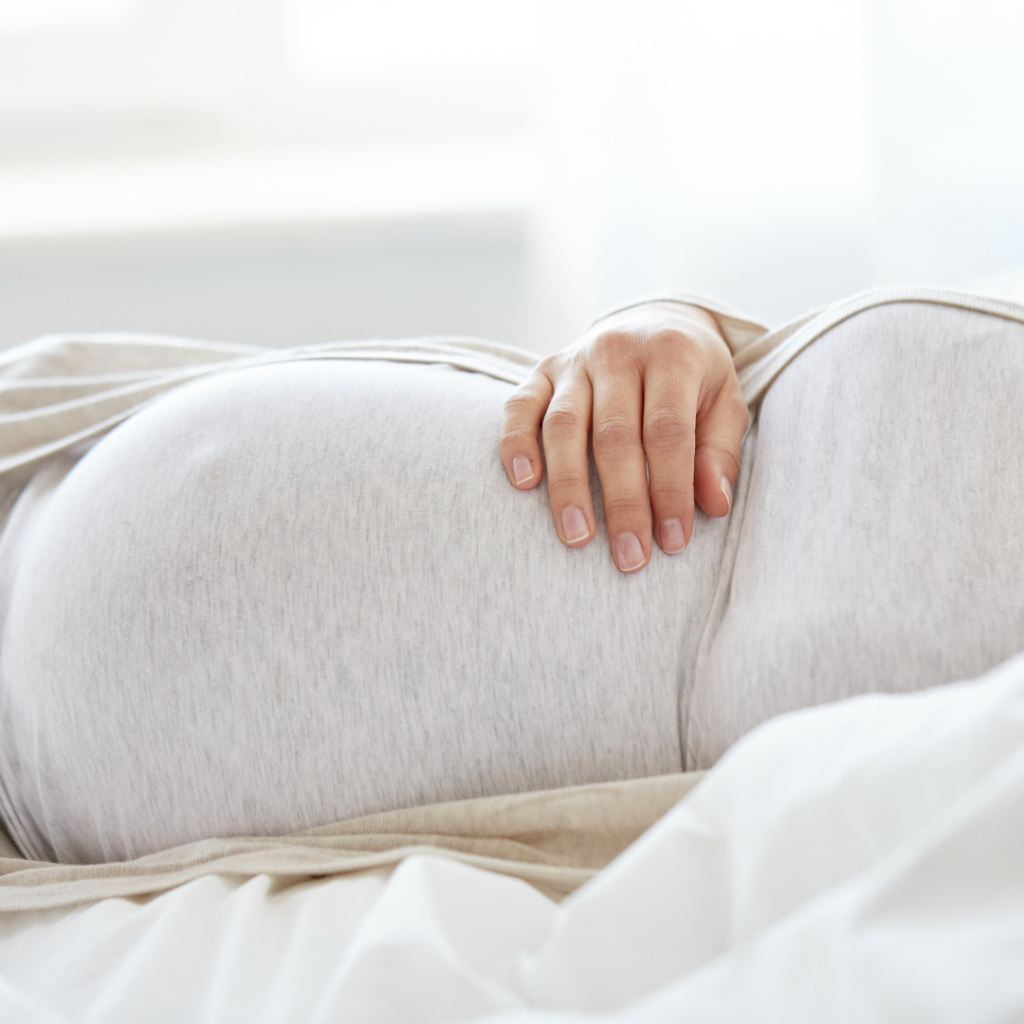Carrying a baby for 9 months is hard work so it’s no surprise that you feel exhausted most of the time. However, your daytime fatigue could also be linked to obstructive sleep apnea, which is a fairly common problem during pregnancy, affecting an estimated 1 in 4 women. In addition to daytime sleepiness and increased fatigue, sleep apnea is also likely to cause other symptoms such as snoring or breathlessness during sleep and you may even wake up with a sore throat or headache. The risk of sleep apnea increases as your pregnancy progresses and it’s also higher if you have excess weight,
a family history of sleep apnea, or habitual snoring before pregnancy.

Obstructive Sleep Apnea in Pregnancy
Obstructive sleep apnea (OSA) is one of the most common sleep-related breathing disorders in the United States, but it is most commonly associated with obesity, aging, heavy alcohol intake, smoking, and menopause. During pregnancy, the risk of OSA increases because of increased weight and hormonal changes. As your pregnancy progresses, there is increased weight and pressure on the diaphragm, which can restrict lung function and reduce airflow. Similarly, the increase in estrogen levels that is observed in any healthy pregnancy may contribute to OSA. This is because high levels ofestrogen can increase inflammation in the nasal mucus membranes, causing congestion and reduced airflow.
Excessive weight gain during pregnancy is linked to a higher OSA risk as extra tissue can physically obstruct the airways when lying down, resulting in breathing impairment.
Why You Shouldn’t Ignore Sleep Apnea During Pregnancy
Sleep apnea is regarded as a serious sleep-related breathing disorder in which the upper airways collapse during sleep, resulting in an interruption of airflow to the lungs. These temporary pauses in breathing are described as apneas and they can last for as little as a few seconds to a whole minute at a time. This disruption in breathing means that your lungs are getting less oxygen and consequently all of your organs are also deprived of adequate oxygen.
As a result, you start to experience fatigue and can also develop high blood pressure or
preeclampsia, gestational diabetes and other problems. This is particularly concerning during pregnancy as all of these conditions directly affect your baby’s health, increasing the risk of preterm birth and low birth weight, as well as potential complications during delivery.
In addition to reducing your sleep quality and increasing fatigue, which makes it harder for you to cope with the physical and emotional demands of pregnancy, it can also compromise your baby’s development, as adequate oxygen levels are crucial for fetal growth.

What You Can Do to Cope with Pregnancy Sleep Apnea
- Obstructive sleep apnea is thought to be underdiagnosed in pregnant women, making it a common cause of maternal and fetal complications. If you experience symptoms of OSA, make it a point to talk to your healthcare provider about screening tests and sleep studies such as polysomnography.
- -Depending on your diagnosis and the severity of the condition, your doctors may recommend using a CPAP (continuous positive airway pressure) machine, to improve airflow. Studies show that CPAP treatment is highly effective even in high-risk pregnancies, resulting in reduced incidence of complications such as preeclampsia.
- Lifestyle changes can make a huge difference and are usually the first line of treatment for OSA
- during pregnancy. Whether you suffer from sleep apnea or any kind of sleep impairment in pregnancy, your sleeping posture makes a huge difference. It’s advisable to avoid sleeping on your back and to use pregnancy body pillows to prop yourself up and stay in place comfortably while asleep.
- Sleeping on your side helps as it keeps the airways open and reduces the risk of airway obstruction.
- Weight reduction is also important if obesity is a contributing factor, but any weight management efforts during pregnancy should be approved and strictly monitored by your healthcare providers to ensure the safety of both you and your baby.
- Alternative approaches such as adhesive breathing strips, which are commonly used to reduce snoring, may help to some extent but there is limited evidence for them. You can also consider using saline nasal sprays and dehumidifiers in your bedroom, but discuss any home treatment with your doctor first.